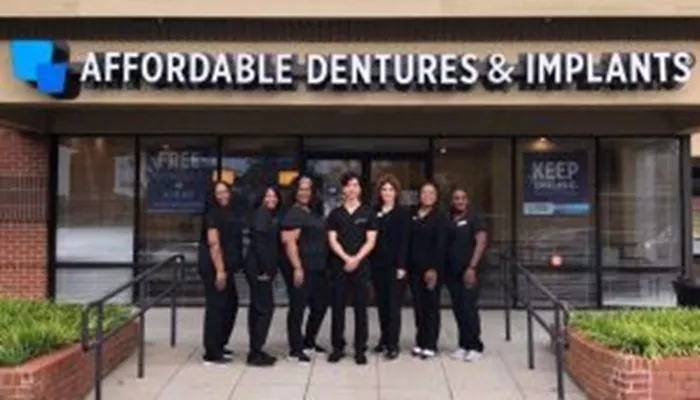Dentures are a common dental appliance used to replace missing teeth. They can significantly improve the functionality and aesthetics of a person’s smile. However, over time, dentures may become loose due to changes in the shape and structure of the underlying oral tissues. When this happens, it can be challenging to keep the dentures in place, leading to discomfort and reduced functionality. One solution to this problem is the use of adhesives specifically designed for loosening dentures. In this article, we will explore the different types of adhesives available, their mechanisms of action, and what constitutes the best adhesive for loosening dentures.
Understanding the Problem of Loose Dentures
Dentures rely on a combination of suction and mechanical retention to stay in place. Over time, however, the shape and structure of the oral tissues can change due to factors such as bone resorption, gum recession, and changes in salivary flow.
These changes can reduce the effectiveness of the suction and mechanical retention mechanisms, leading to loose dentures.
When dentures are loose, they can move around in the mouth, causing discomfort, difficulty in chewing, and even speech impairments.
Types of Adhesives for Loosening Dentures
There are several types of adhesives available to address the problem of loose dentures. Here is a closer look at some of the most common options:
Cream and Paste Adhesives: These are the most commonly used types of adhesives for dentures. They are available in various formulations, including water-soluble, non-toxic, and easy-to-apply versions. Cream and paste adhesives work by creating a tacky surface on the denture base that adheres to the oral tissues. They can be effective for temporarily stabilizing loose dentures, but they may not provide a long-term solution.
Powder Adhesives: Powder adhesives are another option for addressing loose dentures. They are typically applied directly to the denture base and then moistened with water or saliva to activate the adhesive properties. Powder adhesives can create a strong bond between the denture and the oral tissues, but they may be more difficult to apply evenly and can sometimes leave a residue in the mouth.
Adhesive Liners: Adhesive liners are thin, flexible sheets that are applied to the inside surface of the denture base. They are designed to provide additional retention and stability to loose dentures. Adhesive liners can be made from various materials, including silicone, acrylic, and polyvinyl chloride. They are relatively easy to apply and can provide a more secure fit for loose dentures. However, they may need to be replaced periodically as they can wear out over time.
Dental Implants: While not traditionally considered an adhesive, dental implants can be a highly effective solution for addressing loose dentures. Dental implants are artificial tooth roots that are surgically placed into the jawbone. They can support a variety of dental appliances, including dentures, and provide a stable and secure foundation for them. Dental implants can be a long-term solution for loose dentures and can significantly improve the functionality and comfort of the dentures.
Factors to Consider When Choosing an Adhesive
When choosing an adhesive for loosening dentures, there are several factors to consider:
Effectiveness: The primary consideration is the effectiveness of the adhesive in stabilizing the dentures. Some adhesives may provide better retention and stability than others, depending on the specific needs of the patient.
Ease of Use: The ease of use of the adhesive is also important. Some adhesives may be more difficult to apply or remove than others, which can affect the patient’s overall satisfaction with the product.
Comfort: Comfort is another key factor to consider. Some adhesives may cause irritation or discomfort to the oral tissues, while others may be more gentle and comfortable to use.
Duration of Effect: The duration of the adhesive’s effect is also important. Some adhesives may need to be reapplied more frequently than others, which can be inconvenient for the patient.
Cost: The cost of the adhesive is also a consideration, as some options may be more expensive than others.
Best Practices for Using Adhesives
When using adhesives for loosening dentures, it is important to follow best practices to ensure optimal results:
Clean the Dentures: Before applying the adhesive, make sure to clean the dentures thoroughly to remove any food particles, plaque, or debris. This will help ensure that the adhesive can adhere properly to the denture base.
Follow the Instructions: Carefully follow the instructions provided with the adhesive for proper application and removal.
This will help ensure that the adhesive is used effectively and safely.
Monitor for Irritation: Keep an eye on the oral tissues for any signs of irritation or discomfort caused by the adhesive. If any irritation occurs, discontinue use and consult a dentist for alternative options.
Regular Dental Check-ups: Regular dental check-ups are important for maintaining oral health and addressing any issues with dentures. During these check-ups, the dentist can assess the fit and retention of the dentures and provide recommendations for improvements.
Conclusion
In conclusion, addressing loose dentures can be a challenge, but there are several options available to help stabilize them.
Adhesives can be an effective solution for temporarily securing loose dentures, but it is important to choose the right adhesive based on individual needs and preferences. By following best practices for using adhesives and maintaining regular dental check-ups, patients can ensure optimal oral health and function with their dentures.
Related topics:

